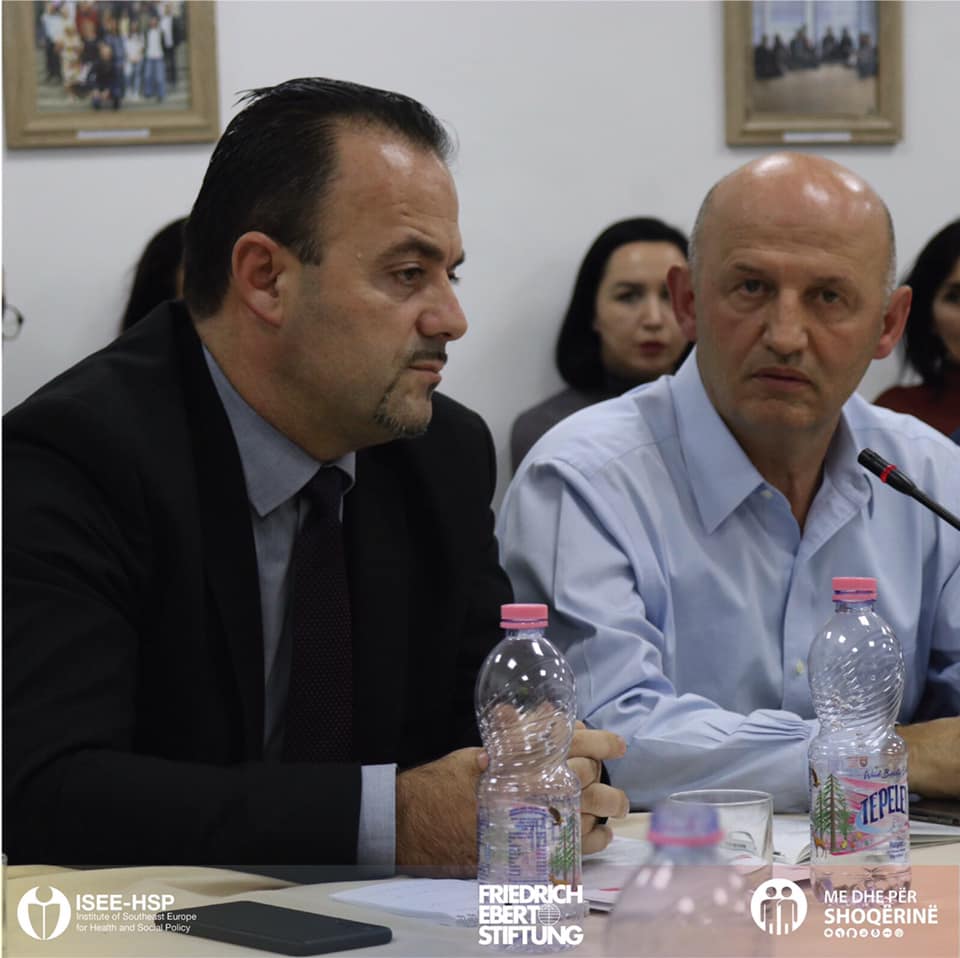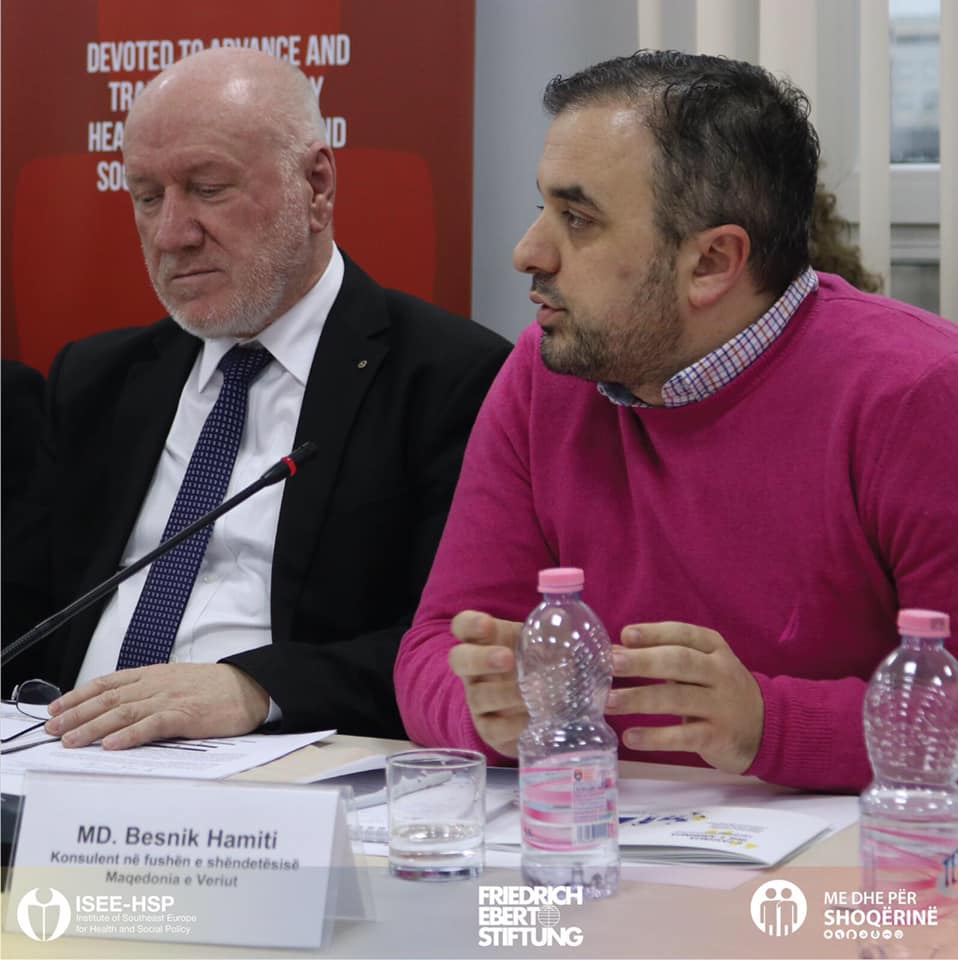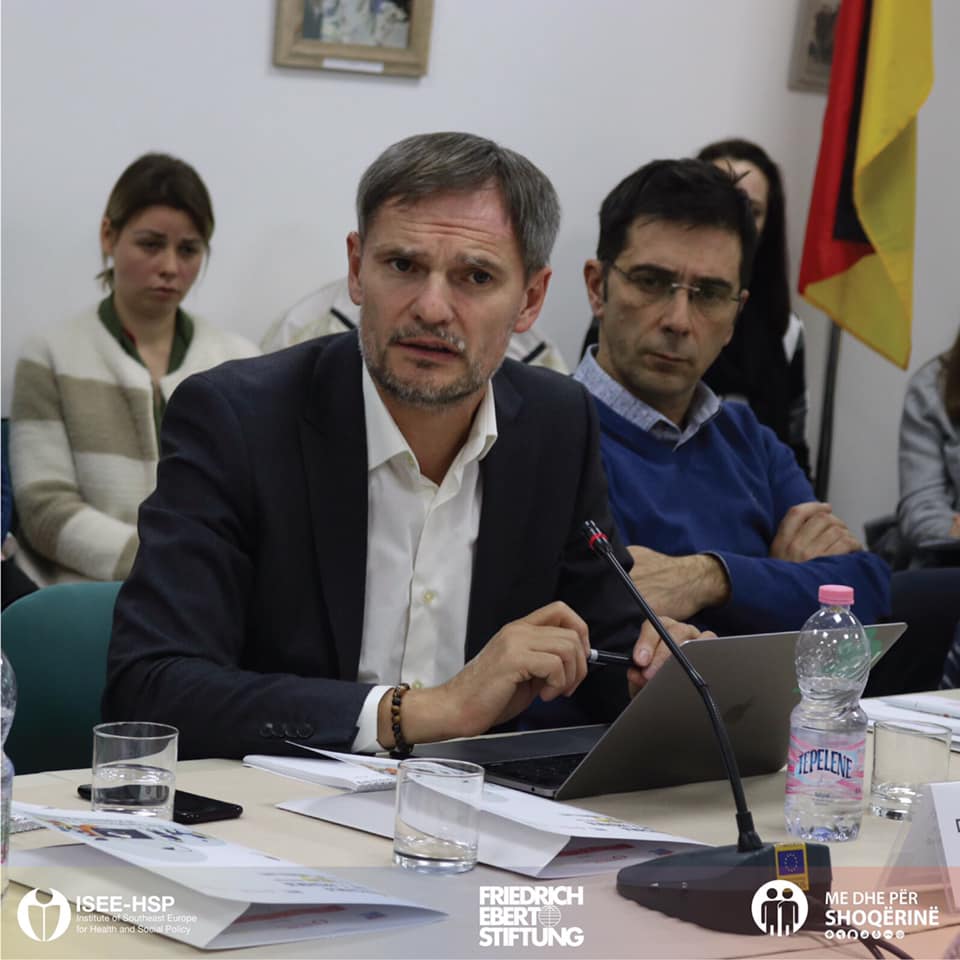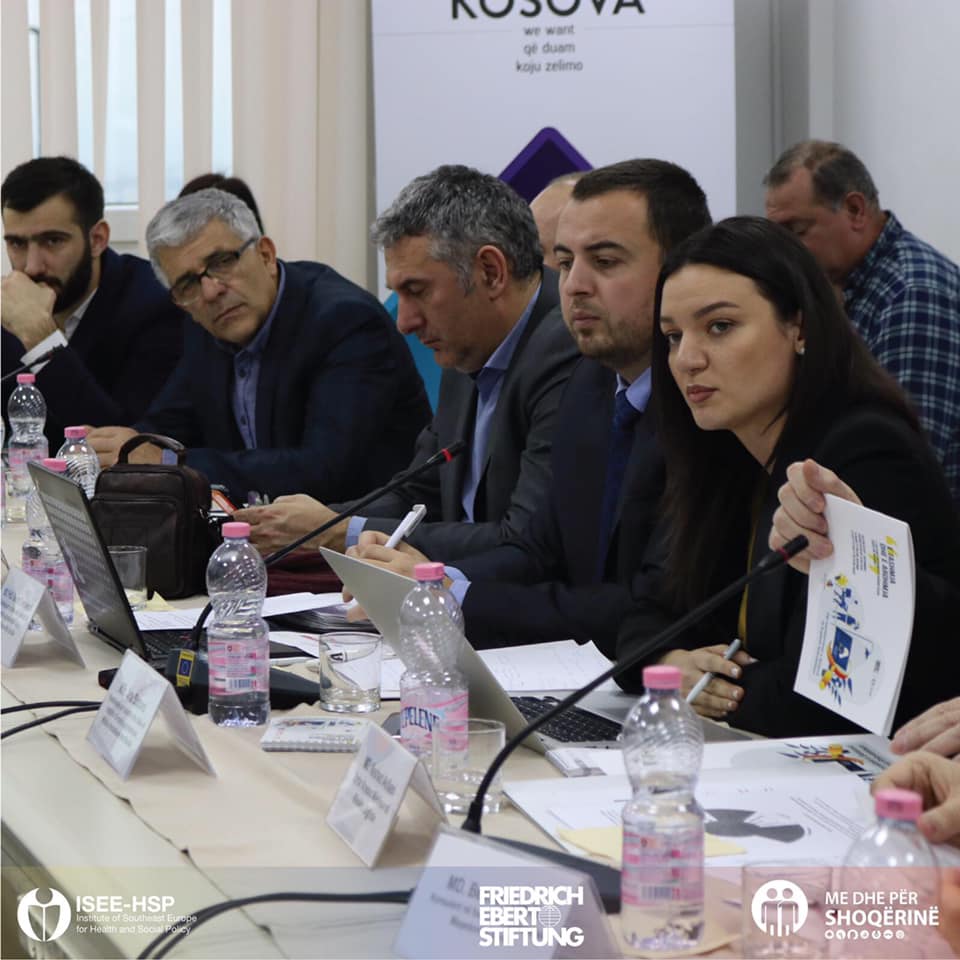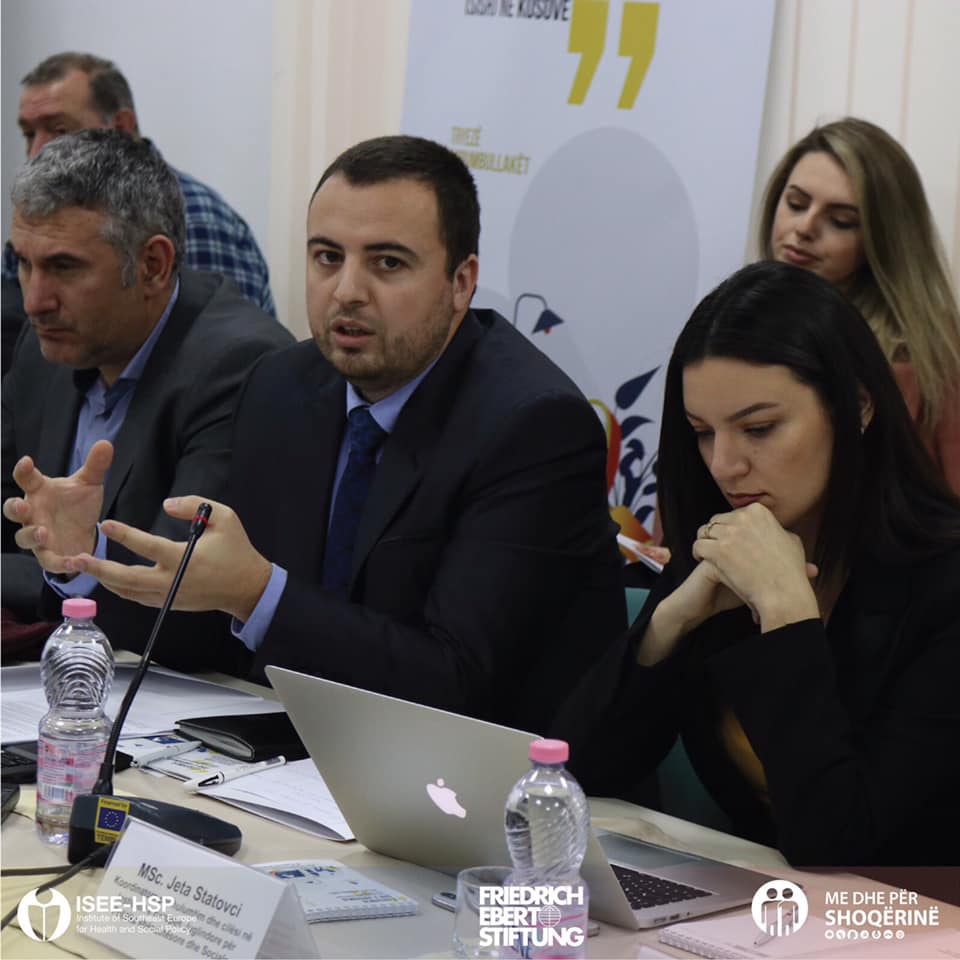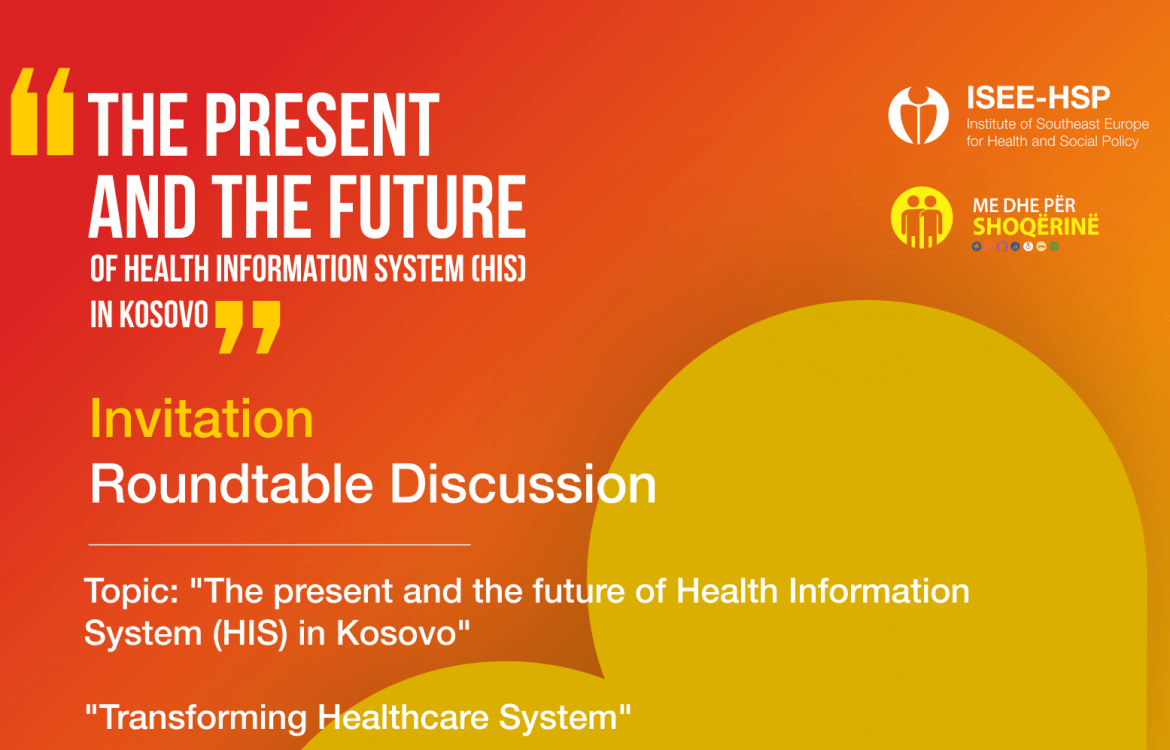
Roundtable discussion on “the Present & the Future of Health Information System in Kosovo”
Within the platform “Kosovo We Want” funded by FES, the Institute of Southeast Europe for Health and Social Policy in cooperation with the NGO "With and For the Society" has organized a round-table discussion on "The Present and Future of the Health Information System" . The purpose of this round-table was to gather key stakeholders in the health sector and present the results of the research “Are we expecting HIS in 2020?”. The discussions during this round-table have brought real experiences from countries in the region and countries with very developed health systems. Kosovo still lacks complete and accurate information and statistics on diseases. The current information system relies heavily on paper for record-keeping, unable to provide a feasible platform to access the medical history of the patient by the provider, or to utilize the information in understanding the general health of the population, burden of disease, and more.
The Basic Health Information System consists of several modules such as staff and credential model, reception module, medical history module, visit module medical, reporting module, personalized table module, audit module, meeting schedule module which also have specific sub-modules and as such it has expanded to 29 Family Medicine Centers and has advanced to the tertiary level. From the BHIS testing phase, it can be understood that the level of knowledge of computer use is limited among health professionals at the primary level of health care. One advantage of BHIS is that the Ministry of Health remains the owner of the system, ensuring proper data protection and access control.
Recommendations Policy makers must share the vision and strategic goals with clarity and full transparency for all stakeholders involved in order to build consensus, support and avoid possible resistance. Involving users from the early stages of design facilitates the process of successful, informed implementation. it is important to prioritize clinics based on the national importance of data generation with high level of accuracy, and clinics that generate a great financial burden to the budget. Collecting information as such, aids in drafting suitable policies and intervention to improve the clinical situation and have an effective use of financial resources, and researchers in understanding disease characteristics/causes which shall be incorporated for prevention. Staff training is essential to ensure proper use of the system and generating qualitative data ranging from computer use to completing the form, to understanding case determination, international disease classification, reporting and data analysis. Inclusion of DRGs shall take place in order to ensure appropriate reimbursement based on patient characteristics, health circumstances, and severity of illness – information derived from BHIS.
For a health system we want, for the Kosovo we want!


